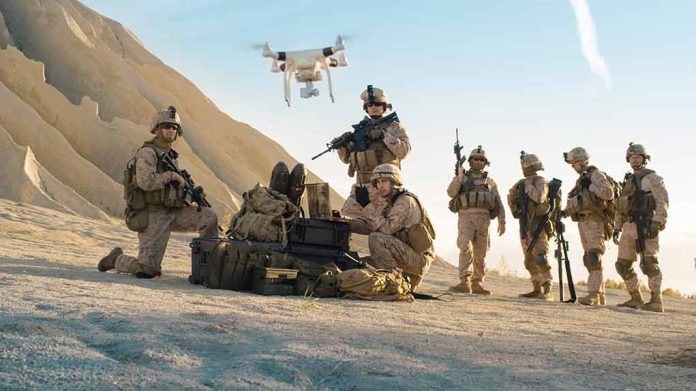
The recent Israeli drone attack on a Sunni Islamist leader near Beirut has further strained the Middle East’s already tense geopolitical landscape.
Key Takeaways
- Israel conducted an air strike in Beirut targeting senior Hezbollah commander Fuad Shukr.
- The strike caused damage to a block of flats in the Dahiyeh suburb, a Hezbollah stronghold.
- Lebanon’s Prime Minister criticized the strike as “blatant Israeli aggression.”
- The UN expressed deep concern over the strike, urging diplomatic solutions.
- The U.S. affirmed Israel’s right to self-defense after the strike.
Significance of the Airstrike
Israel recently executed a drone attack near Beirut, targeting senior Hezbollah commander Fuad Shukr. Reports indicate the strike resulted in significant damage to a block of flats in the Dahiyeh suburb, a known Hezbollah stronghold. While Israel claims Shukr, who was allegedly responsible for a deadly rocket attack in the Golan Heights, was killed, other sources assert he survived. The event underscores the enduring volatility between Israel and Hezbollah.
This incident has led to Lebanon’s Prime Minister Najib Mikati describing it as “blatant Israeli aggression.” Tensions between Israel and Hezbollah have historical roots, combining geopolitical conflicts and religious divides, necessitating continued monitoring for potential escalations.
International Responses and Potential Impact
The international community is closely tracking the aftermath of the strike. The United Nations, through Special Coordinator Jeanine Hennis-Plasschaert, has conveyed deep concern, advocating for diplomatic resolutions to prevent further conflicts. Meanwhile, the United States, forewarned about the strike, reiterated Israel’s right to defend itself.
The attack’s impact stretches beyond the direct parties involved, playing into the broader Israel-Gaza conflict. Potential retaliations by Hezbollah or its allies could plunge the region into further unrest, disrupting any ongoing conflict resolution efforts. As peace remains delicate across the Middle East, the necessity for genuine diplomatic dialogue becomes increasingly apparent.
The Path Forward
This latest event between Israel and Hezbollah serves as a reminder of the ongoing hostilities deeply ingrained in the region. It raises critical questions about the potential for future escalations between long-standing adversaries. As the situation evolves, the international community’s role in fostering peace and stability becomes crucial. Diplomatic measures are imperative to mitigate hostilities and ensure that historical grievances do not perpetuate further conflict.
In the broader context of Middle Eastern geopolitics, both sides must consider actions and their repercussions on the fragile equilibrium in the region. As developments unfold, maintaining an open channel for negotiation appears to be the only path to sustainable peace.





